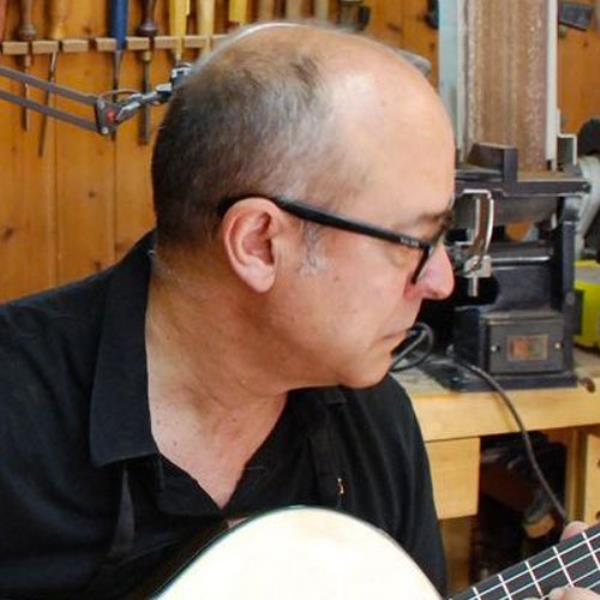Immersed in music
- Daniel is from Granada, a historic citadel of guitar making
- His hybrid guitar can be used to interpret various genres of music
- He received a national craftsmanship prize in 2016
Daniel always wanted to build instruments. He believed that to do so, he must first learn how to play them. He studied violin and piano, then undertook studies in piano restoration. All were merely stepping stones towards his real passion: guitars. Just like flamenco, guitar making is deeply embedded within the history of his native Granada. Daniel spent 15 years with a master, discovering the many tonalities of wood and learning to create exquisite classical and flamenco instruments. Finally, he took over the management of a guitar workshop in 1991. Since then, he has dedicated himself to the research, restoration and creation of guitars, finding inspiration in historic traditions and driven by his search for harmonic excellence.
Interview
When did you choose to make instruments?
When I was young, I repaired a piano to pay for my holidays. I had come across a piano that needed restoring. It was not an important piano by any means, that would have been irresponsible. I had a friend whose father was a piano restorer. He trained me and showed me how to repair it.
What's the key to your work?
When you make an instrument, what you want is good sound quality. Achieving that in an instrument requires a certain construction, which draws on both architecture and organology. Making a violin is not the same as making a guitar for the obvious reason that a violin uses different types of strings, for example.
Is innovation as important as tradition?
What is the objective of the luthier? To know how to meet the needs of musical evolution! Today people don’t only play either flamenco, classical, or jazz, they often combine them all. So I create adaptable instruments.
Do you pass on your skills to others?
Nobody can distill such a time-consuming profession into a weekend or a downloadable 13-minute tutorial. My courses last a month, and the idea is to pass on some of my knowledge and convey the energy required to build a guitar. Does it turn you into a professional guitar maker? Certainly not – it takes a lot more time for that!
Daniel Gil De Avalle is a master artisan: he began his career in 1989 and he started teaching in 2014
- Address: Plaza del Realejo 15, 18009, Granada, Spain
- Hours: Monday to Friday 10:00-13:30 / 17:00-20:00; Saturday 10:00-13:30
- Phone: +34 958221610
- Languages: Spanish, English, French
Daniel Gil De Avalle
- Address: Plaza del Realejo 15, 18009, Granada, Spain
- Hours: Monday to Friday 10:00-13:30 / 17:00-20:00; Saturday 10:00-13:30
- Phone: +34 958221610
- Languages: Spanish, English, French
























































































































